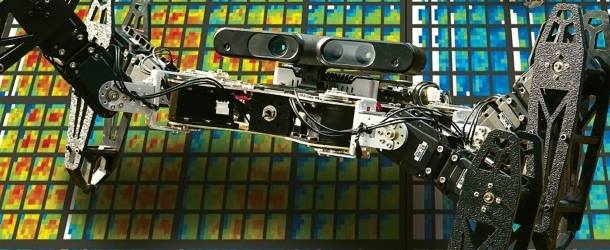One of my personal favorite devices forecast in an original episode of Star Trek is a system whereby one person could speak in their native tongue and everyone in earshot would simultaneously hear what they’re saying in their individual native languages. For example, if you gave a speech in English at the United Nations, each representative, be they from Germany, Italy, France, etc., would instantly hear your speech in their country’s language without the aid of human interpreters.
On a different, but soon to be related note, a favorite portrayal of a business model comes from an old episode of South Park. Gnomes have decided to go into the underwear business and have a three-step business plan: (1) collect underwear, (2) ?, and (3) profit. Briefly put, the gnomes steal underwear from characters in the story, scratch their heads, and dispose of the underwear for profit.
Humorous, but not too far afield from current business practice: (1) develop product as fast as you can, (2) ?, and (3)sell as much product as you can as fast as you can for profit. In the non-cartoon world, step two (?) is actually “keep your fingers crossed and hope nothing goes wrong that we have to either give refunds or payout in lawsuits”.
According to author Sandra Helsel, “Robots Are Learning to Adapt and Teach Themselves to Survive.” In the full article, she describes how one robot that learned to walk on an unpolished floor, was able to adapt to a slippery, waxed surface after falling a few times. It searched its database for various gaits, found the proper one, got up, and walked on.
The premise is that “acquired knowledge is driving the software behind other robots in development to make them more flexible.” As per professor David Lane of the University of Edinburgh and director of the Edinburgh Centre for Robotics, “What distinguishes this new generation of robots is that they can adapt,” Lane describes the coming generation of machines as “the arms, legs and sensors of big data working in the Internet of Things”.

Now imagine robots with wireless connectivity to the internet. One robot would have access to nearly all the practical knowledge in the world with not only the power to process and assimilate it faster than the speed of sound, but the magnificent ability to reject worthless knowledge such as social media content, etc.
Next, figure that robot can communicate with all the other connected robots with no worries about language differences. Robots have a universal language, and it’s not music or money. It’s zeroes and ones.
Apparently, these robots are unlike humans who often do not grasp logic no matter how many times they are told something in their own language or observe and/or experience something in real time. Humans have the unique ability to hold on to philosophies, concepts, and practices that simply do not work in any way. Robots, however, can adapt and be functional and productive in almost any situation. Robots seem to have a grasp on positive evolution.
About that business model, most likely robots will address step two: make sure it works and do no harm. Theoretically, and hopefully, they will learn from past failures. They may address the errors of human logic, e.g., insanity is repeating the same behavior hoping for a different outcome and history repeats itself. ~MD